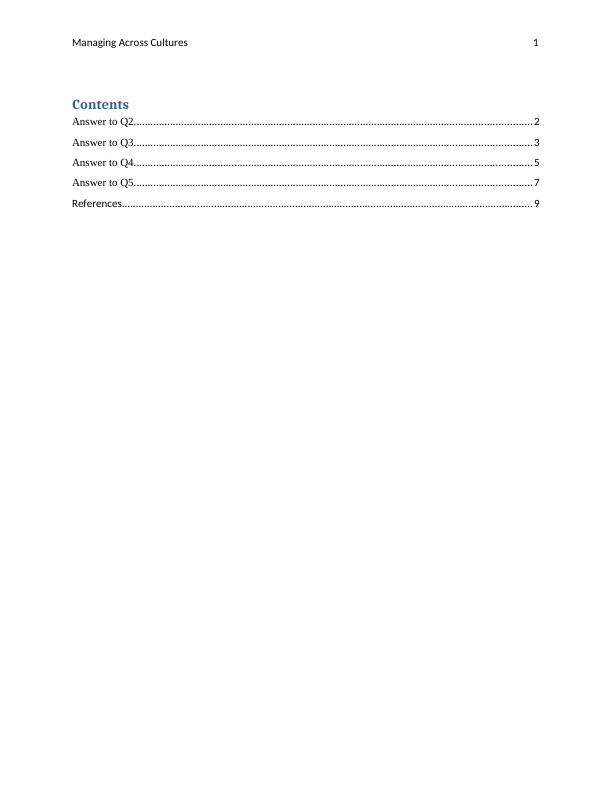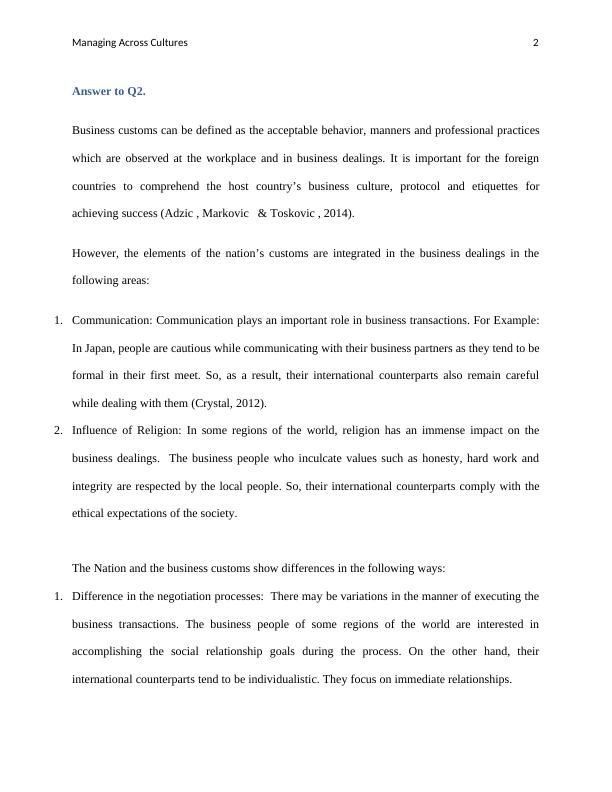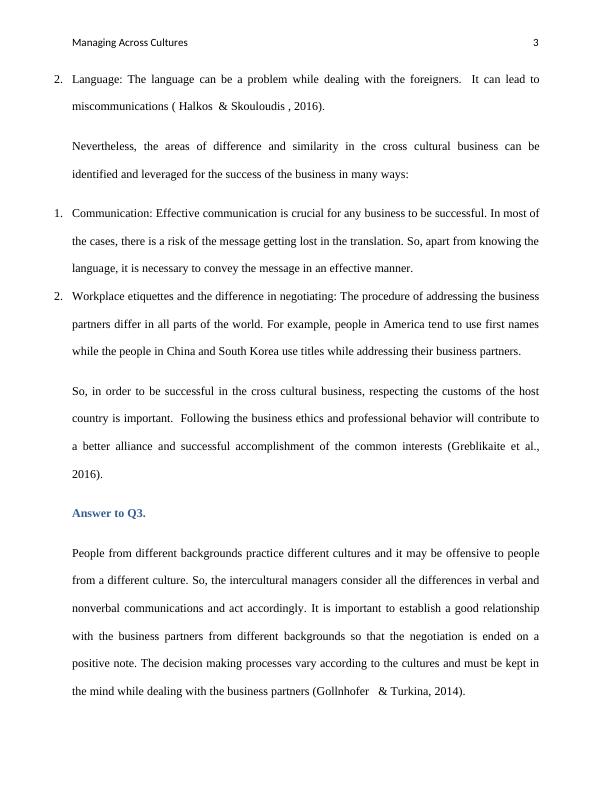Managing across cultures - assignment
Added on 2021-04-21
12 Pages2171 Words106 Views
Running head: Managing Across CulturesManaging Across Cultures

Managing Across Cultures 1ContentsAnswer to Q2..............................................................................................................................................2Answer to Q3..............................................................................................................................................3Answer to Q4..............................................................................................................................................5Answer to Q5..............................................................................................................................................7References...................................................................................................................................................9

Managing Across Cultures 2Answer to Q2.Business customs can be defined as the acceptable behavior, manners and professional practiceswhich are observed at the workplace and in business dealings. It is important for the foreigncountries to comprehend the host country’s business culture, protocol and etiquettes forachieving success (Adzic , Markovic & Toskovic , 2014).However, the elements of the nation’s customs are integrated in the business dealings in thefollowing areas:1.Communication: Communication plays an important role in business transactions. For Example:In Japan, people are cautious while communicating with their business partners as they tend to beformal in their first meet. So, as a result, their international counterparts also remain carefulwhile dealing with them (Crystal, 2012).2.Influence of Religion: In some regions of the world, religion has an immense impact on thebusiness dealings. The business people who inculcate values such as honesty, hard work andintegrity are respected by the local people. So, their international counterparts comply with theethical expectations of the society.The Nation and the business customs show differences in the following ways:1.Difference in the negotiation processes: There may be variations in the manner of executing thebusiness transactions. The business people of some regions of the world are interested inaccomplishing the social relationship goals during the process. On the other hand, theirinternational counterparts tend to be individualistic. They focus on immediate relationships.

Managing Across Cultures 32.Language: The language can be a problem while dealing with the foreigners. It can lead tomiscommunications ( Halkos & Skouloudis , 2016).Nevertheless, the areas of difference and similarity in the cross cultural business can beidentified and leveraged for the success of the business in many ways:1.Communication: Effective communication is crucial for any business to be successful. In most ofthe cases, there is a risk of the message getting lost in the translation. So, apart from knowing thelanguage, it is necessary to convey the message in an effective manner.2.Workplace etiquettes and the difference in negotiating: The procedure of addressing the businesspartners differ in all parts of the world. For example, people in America tend to use first nameswhile the people in China and South Korea use titles while addressing their business partners.So, in order to be successful in the cross cultural business, respecting the customs of the hostcountry is important. Following the business ethics and professional behavior will contribute toa better alliance and successful accomplishment of the common interests (Greblikaite et al.,2016).Answer to Q3.People from different backgrounds practice different cultures and it may be offensive to peoplefrom a different culture. So, the intercultural managers consider all the differences in verbal andnonverbal communications and act accordingly. It is important to establish a good relationshipwith the business partners from different backgrounds so that the negotiation is ended on apositive note. The decision making processes vary according to the cultures and must be kept inthe mind while dealing with the business partners (Gollnhofer & Turkina, 2014).

End of preview
Want to access all the pages? Upload your documents or become a member.
Related Documents
Communication in Business: Chinese Business Etiquette and Cross-Cultural Miscommunicationlg...
|6
|2174
|100
Issues in International Businesslg...
|15
|3313
|492
People and Organisations in Globalisation and Digitalisationlg...
|14
|3728
|250
Impact of Religion on Entrepreneurs in South Korealg...
|6
|1271
|62
Cross-Cultural Management: Case Study and Personal Reflectionlg...
|10
|2777
|50
Chinese Business Etiquette Analysis as per Hofstede’s Cultural Dimensionlg...
|7
|2027
|178
